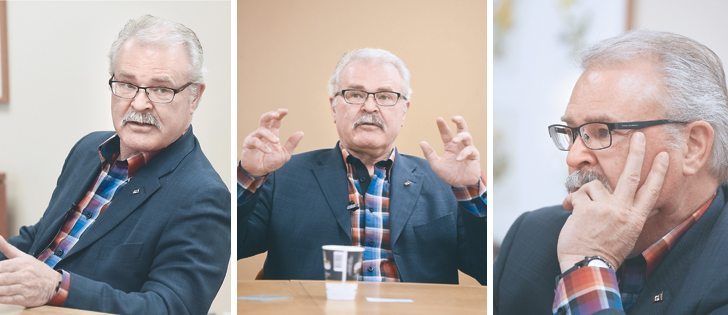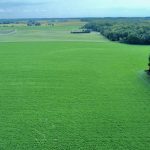Federal ag minister hopes Canada’s LLP policy will be ready for consultation this spring
It took the discovery of Roundup Ready wheat in Oregon to get the United States on board with Canada’s plan to develop a low- level presence policy for genetically modified crops.
“We couldn’t really get (U.S. agriculture secretary) Tom Vilsack to commit one way or another until they had that Roundup Ready wheat scare,” said agriculture minister Gerry Ritz.
The incident occurred in May 2013. Discovery of the GM wheat caught the industry by surprise because Monsanto shut down its Roundup Ready wheat program in 2005.
Read Also

Forecast leans toward cooling trend
July saw below average temperatures, August came in with near to slightly above average temperatures and September built on this warming trend with well above average temperatures for the month.
South Korea and Japan temporarily halted purchases of soft white wheat until the U.S. government developed a test for the trait.
Vilsack phoned his Canadian counterpart to get his thoughts on how to deal with the Oregon situation.
“Get your head out of your butt and start talking about low-level presence because you’re going to lose markets,” was Ritz’s blunt reply.
“I said, ‘you guys are going to have to come on side with us and get serious about it,’ and he said, ‘yeah, you’re right.’ ”
Canada has been leading efforts to persuade other grain exporting nations to adopt low level presence policies.
The hope is the concept will eventually spread to importers, enabling countries to accept shipments containing trace levels of unapproved GM crops. That would eliminate many costly trade disruptions.
Canada wants to become the first country to implement such a policy. It has been hashing out details since 2011.
The impetus for the policy was the 2009 discovery of CDC Triffid, an unapproved line of GM flax, in shipments to the European Union. The discovery devastated trade with Canada’s top flax customer.
Canada has been looking for a powerful ally to help push its LLP agenda, which it now has with Vilsack and U.S. commodity groups. The American Soybean Association has made development of an LLP policy one of its key initiatives.
“It would really benefit all of us to circumvent some of the efforts to restrict trade,” association chair Ray Gaesser said during the 2015 Commodity Classic.
The association has been discussing the issue with commodity groups, exporters, seed technology companies and the Grocery Manufacturers Association.
“There’s a lot of people realizing that’s the direction we need to go,” he said.
Ron Bonnett, president of the Canadian Federation of Agriculture, is pleased to hear the U.S. agriculture secretary and U.S. commodity groups are on board .
“That’s interesting how it has to be in your own bed before you really get excited,” he said with a laugh.
The issue recently surfaced at a meeting of the Canada-Mexico Partnership, which the CFA co-chaired. Bonnett said the Mexicans are onside.
“I think there is some momentum starting to build,” he said.
Ritz said there is a group of exporting nations that all agree something needs to be done, but they disagree on what the magic number should be for an allowable presence of unapproved GM crops.
He hopes Canada will have a LLP policy ready for public consultation by spring.
Contact sean.pratt@producer.com
















